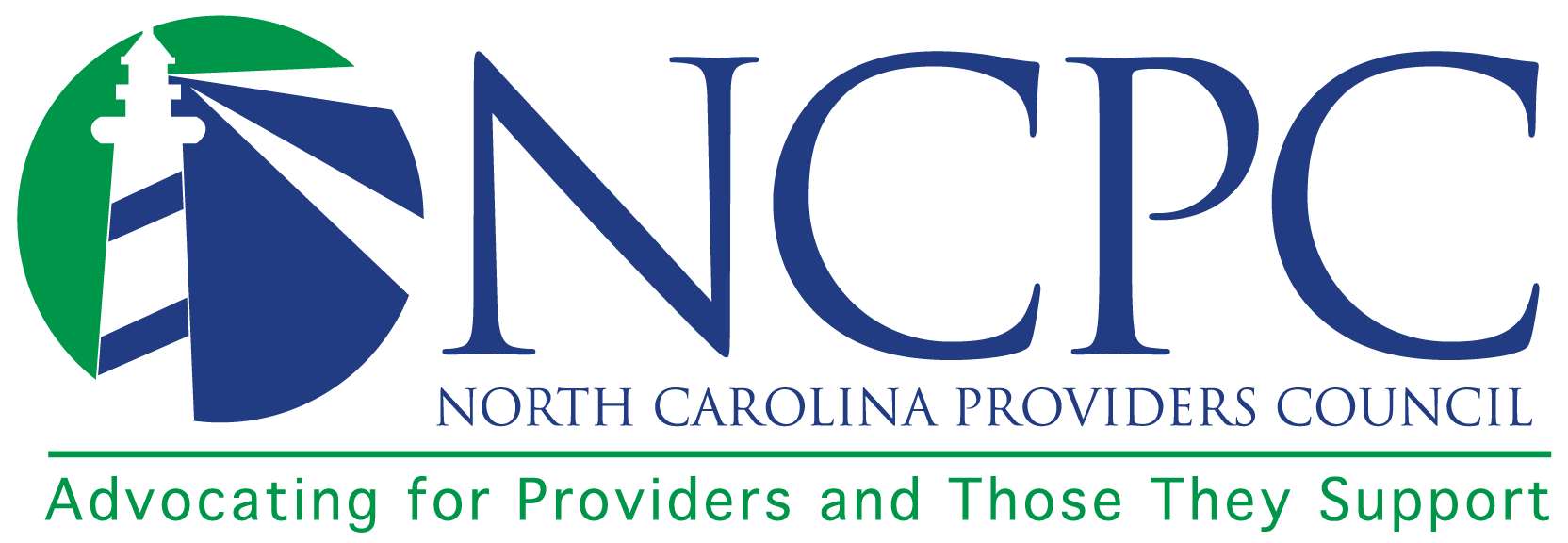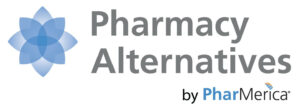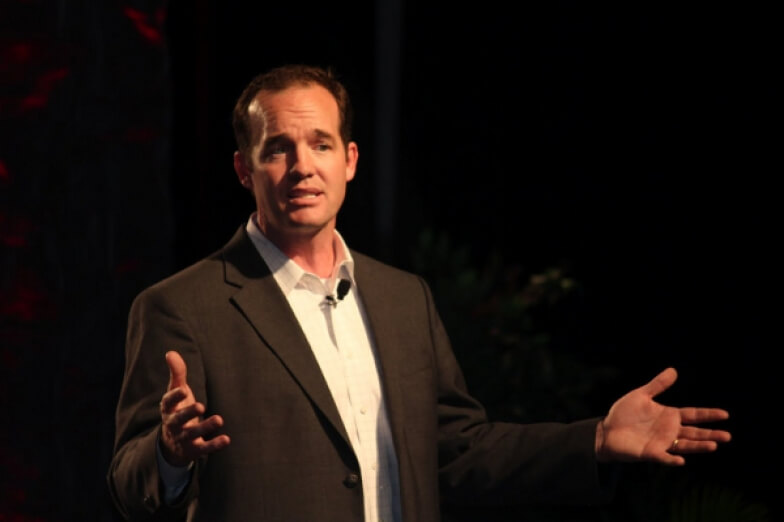Code of ethics
PREAMBLE :
The North Carolina Providers Council promotes the overall improvement of both the quantity and quality of community support necessary for individuals to remain in the community. The mission of this organization is:
- Promoting openness and communication
- Encouraging professional growth
- Assuring that members adhere to the Council’s professional code of ethics
- Supporting members
- Fostering the development of appropriate resources and supports
- Advocacy
This mission is rooted in the following core values, which drive the development of our Code of Ethics:
INTEGRITY : Accurate and truthful representation
COMPETENCE : Honor responsibilities to achieve and maintain the highest level of professional competence for members and those in their employ.
PROFESSIONAL CONDUCT : Promote the dignity and autonomy of the profession, maintain harmonious interprofessional and intraprofessional relationships, and accept the profession’s self-imposed standards. All professional relationships should be directed to improving the quality of life for the individuals who receive supports from the member agency.
PROMOTIONS AND REPRESENTATION : Assure the right of consumers and others who make decisions regarding services to have complete and accurate information on which to make choices.
INDIVIDUAL VALUE AND DIGNITY : Provide supports and services which promote respect and dignity of each individual served.
SOCIAL RESPONSIBILITY : Supports the emergence and growth of inclusive communities.
Each individual/organization who is a member of the NCPC will abide by this Code of Ethics. Any action that violates the spirit and purpose of this code will be considered unethical. Any individual in a staff position within a member program is responsible for compliance with the professional standards and code of conduct for his/her professional association. Further, the program and administration is responsible for the ethical standards of practice as prescribed by the relevant licensing, accrediting, and regulatory bodies.
A code of ethics for members is designed to advance the highest standards for professional conduct. A code of ethics establishes parameters that define individual as well as programmatic conduct in the areas of development and implementation, marketing and advertising, and services provided to individuals and their significant others within the array of programs and services represented by the Providers Council.
This code of ethics reflects the importance of, and the respect of, the fundamental human, civil, constitutional and statutory rights of each individual with whom members and their employees have contact.
Overall, we as professionals working with people who utilize supports, bear responsibility for careful realization of personal, programmatic, organizational, financial, and/or political situations and pressures that might lead to the misuse of their influence. In subscribing to this code of ethics, we accept this responsibility and abide by a commitment to cooperate in its implementation and regulation.
ETHICAL STANDARDS
PRINCIPLE OF ETHICS I : INTEGRITY – Provide accurate and truthful representation.
- Members will prohibit anyone under their supervision from engaging in any practice that violates the Code of Ethics.
- Members will not engage in dishonesty, fraud, deceit, misrepresentation, or any form of conduct that adversely reflects on our profession, the Council, or on the member’s fitness to serve individuals professionally.
- Members who have directly knowledge of a violation of the Code of Ethics shall notify the Executive Director of the member agency in writing.
- Members who are notified of an alleged violation of the Code of Ethics by either a member or non-member, shall respond in writing to the allegation.
- Members will not misrepresent information, services rendered, or engage in any scheme to mislead.
- Common unethical practices include but are not limited to deceptive billing, falsification of documentation, commission of a felony, gross neglect and fiduciary impropriety.
- Members and their employees will keep the needs and interests of the individuals for whom services are provided as the focus of all transactions.
- Members and their employees will provide all services ensuring the highest standards of integrity and honor as outlined in this code of ethics.
PRINCIPLE OF ETHICS II : COMPETENCE – Honor responsibilities to achieve and maintain the highest level of professional competence for themselves and those in their employ.
- Members will represent their competence accurately.
- Members will engage in only those aspects of the profession that are within the scope of their competence, considering their level of education, training, and experience.
- Members will provide training and continuing education that maximizes the competence of all staff.
- Members will prohibit any of their staff from providing services that exceed the staff member’s competence, considering the employee’s level of education, training and experience.
- Members who have direct knowledge of a colleague member’s incompetence should consult with that colleague member and offer supportive assistance or refer to the Board of Directors for assistance through the Mentoring Panel.
- Members and their employees will keep abreast of information pertaining to the field of practice through networking, education and research to ensure the highest quality of services are provided.
PRINCIPLE OF ETHICS III : PROFESSIONAL CONDUCT – Uphold the dignity and autonomy of the profession, maintain harmonious interprofessional and intraprofessional relationships, and accept the profession’s self-imposed standard. All professional relationships should be directed to improving the quality of life of the individual who receives support from the member agency.
- Members will treat all professionals from other agencies with respect and will accurately and fairly represent the services provided by colleagues.
- Members will not discriminate in their relationships or services with consumers, contractors, and colleagues on the basis of race or ethnicity, gender, age, religion, national origin, sexual orientation, or disability.
- Members will not participate in professional activities that constitute a conflict of interest, always giving preference to professional responsibility over any personal interest.
- Under no circumstance will the support relationship between the program, staff, consumer and/or their families or legal guardian be exploited, cause conflict within the community, or result in distortion on the nature of the relationship itself.
PRINCIPLE OF ETHICS IV : PROMOTIONS AND REPRESENTATION – Assure the right of the consumers and others who make decisions regarding services have complete information on which to make their choices.
- Members will portray their services and capacities through public and private statements that are forthright and factual.
- Members will not engage in false and deceptive representation of their services or the services of other providers.
- In the marketing of services, members will not offer inducements to primary consumers or their legal representatives that are unrelated to services provided.
PRINCIPLE OF ETHICS V : INDIVIDUAL VALUE AND DIGNITY – Provide supports and services which promote respect and dignity of each individual served.
- Members will advocate and provide supports that are designed to meet the needs of the individual with emphasis on promoting:
- Choice
- Growth and Development
- Health and Safety
- Quality of Life
- Members will support and encourage each individual participant to achieve his/her full potential, recognizing the individual serves as the primary participant.
- Members will foster a broad range of options, empowering individual choice and self-determination, affording the individual the dignity of risk.
- Members will ensure their services are directed by and toward the enhancement or quality of life and the achievement of independence, contribution to society, and community inclusion.
- Members will promote services which are always dignified, age relevant and empowering.
- Members will support persons in natural settings in ways which minimize artificial and restrictive interactions and settings.
- Members will protect the confidentiality and privacy of individuals served.
- Members will advocate for standards that promote outcomes of excellence for people receiving supports.
PRINCIPLE OF ETHICS VI : SOCIAL RESPONSIBILITY – Take responsibility for supporting the emergence and growth of inclusive communities.
- Members will cooperate with the local community within which they provide their services.
- Members have the responsibility to join with their community to improve the perceptions and acceptance of persons who receive support services.
ETHICS COMMITTEE
The Ethics Committee will consist of eight members. Nomination for the committee members will come from the Board of Directors. A qualified nomination is any employee of a member agency/organization. Each Director of the Board may nominate one individual and the eighth committee member will be nominated by the Board President. A majority vote by the Board of Directors is required for approval of each member nominated to serve on the Ethics Committee.
The term of each elected Ethics Committee member will correspond to the term of the Board member who nominated the member. The Board President will select the committee Chairperson.
Ethics Committee meetings will occur at the request of the Board of Directors for the purpose of mediating or negotiating a settlement against a member who has violated applicable laws and regulations and/or the Code of Ethics.
MENTORING PANEL
The Board of Directors is authorized to maintain a list of members who volunteer to serve as Mentors for other members who have questions or concerns about compliance with the Code of Ethics or applicable law and regulation.
Members who serve as Mentors are not agents of the Board of Directors and do not have the authority to bind the Board in any way. Members serving as Mentors should observe all confidentiality principles and rules. The interpretation or advice of a Mentor is not, per se, the interpretation or advice of the Board of Directors.
The Board of Directors may request that a member accept mentor services based on concerns the Board has identified. Such request shall come as a decision of the Board of Directors in closed session. In such a case, mentor responsibilities, including reports, shall be defined by the Board of Directors and the Ethics Committee.
EXPULSION OR SANCTION
The Board of Directors, in its sole discretion, may expel or sanction any member found to have violated applicable laws and regulations governing member business practices by competent authority, if such are also violations of the Code of Ethics. The Board of Directors may request the Ethics Committee to negotiate or mediate a settlement of the issues or to recommend the degree of the Board sanction.






